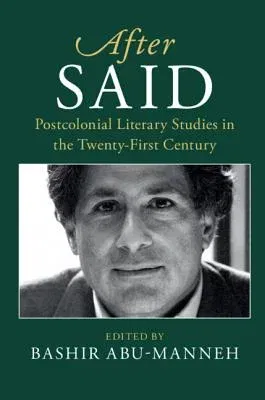After Said: Postcolonial Literary Studies in the Twenty-First CenturyHardcover, 13 December 2018

Qty
1
Turbo
Ships in 2 - 3 days
In Stock
Free Delivery
Cash on Delivery
15 Days
Free Returns
Secure Checkout

Part of Series
After
Print Length
232 pages
Language
English
Publisher
Cambridge University Press
Date Published
13 Dec 2018
ISBN-10
1108429173
ISBN-13
9781108429177
Description
Product Details
Book Format:
Hardcover
Country of Origin:
GB
Date Published:
13 December 2018
Dimensions:
22.86 x
15.75 x
1.52 cm
ISBN-10:
1108429173
ISBN-13:
9781108429177
Language:
English
Location:
New York
Pages:
232
Publisher:
Series:
Weight:
453.59 gm